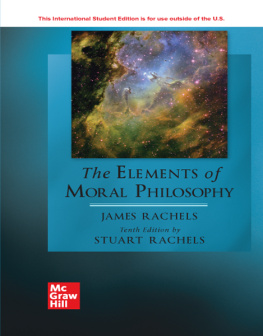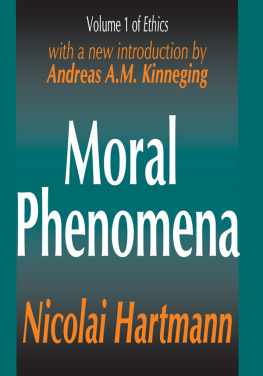On What Matters
The Berkeley Tanner Lectures
The Tanner Lectures on Human Values were established by the American scholar, industrialist, and philanthropist Obert Clark Tanner; they are presented annually at nine universities in the United States and England. The University of California, Berkeley became a permanent host of annual Tanner Lectures in the academic year 20002001. This two-volume work is the sixth in a series of books based on the Berkeley Tanner Lectures. The volumes include a substantially revised and expanded version of the lectures that Derek Parfit presented at Berkeley in November of 2002, together with the responses of the three invited commentators on that occasion, T. M. Scanlon, Susan Wolf, and Allen Wood; there is also a fourth set of comments, by Barbara Herman, as well as replies to the comments and additional material by Derek Parfit. The volumes are edited by Samuel Scheffler, who also contributes an introduction. The Berkeley Tanner Lecture Series was established in the belief that these distinguished lectures, together with the lively debates stimulated by their presentation in Berkeley, deserve to be made available to a wider audience. Additional volumes are in preparation.
Martin Jay
R. Jay Wallace
Series Editors
Volumes Published in the Series:
Joseph Raz, The Practice of Value
Edited by R. Jay Wallace
With Christine M. Korsgaard, Robert Pippin, and Bernard Williams
Frank Kermode, Pleasure and Change: The Aesthetics of Canon
Edited by Robert Alter
With Geoffrey Hartman, John Guillory, and Carey Perloff
Seyla Benhabib, Another Cosmopolitanism
Edited by Robert Post
With Jeremy Waldron, Bonnie Honig, and Will Kymlicka
Axel Honneth, Reification: A New Look at an Old Idea
Edited by Martin Jay
With Judith Butler, Raymond Geuss, and Jonathan Lear
Allan Gibbard, Reconciling Our Aims
Edited by Barry Stroud
With Michael Bratman, John Broome, and F. M. Kamm
On What Matters
VOLUME ONE
DEREK PARFIT
Edited and Introduced by
Samuel Scheffler


Great Clarendon Street, Oxford OX2 6DP
Oxford University Press is a department of the University of Oxford.
It furthers the Universitys objective of excellence in research, scholarship,
and education by publishing worldwide in
Oxford New York
Auckland Cape Town Dar es Salaam Hong Kong Karachi
Kuala Lumpur Madrid Melbourne Mexico City Nairobi
New Delhi Shanghai Taipei Toronto
With offices in
Argentina Austria Brazil Chile Czech Republic France Greece
Guatemala Hungary Italy Japan Poland Portugal Singapore
South Korea Switzerland Thailand Turkey Ukraine Vietnam
Oxford is a registered trade mark of Oxford University Press
in the UK and in certain other countries
Published in the United States
by Oxford University Press Inc., New York
Derek Parfit 2011 except:
Introduction Samuel Scheffler and Commentaries
Susan Wolf, Allen Wood, Barbara Herman, and T. M. Scanlon 2011.
Portions of On What Matters by Derek Parfit were delivered as a Tanner Lecture
on Human Values at the University of California, Berkeley, November 2002.
Printed with permission of the Tanner Lectures on Human Values, a Corporation,
University of Utah, Salt Lake City, Utah, USA.
The moral rights of the authors have been asserted
Database right Oxford University Press (maker)
First published 2011
All rights reserved. No part of this publication may be reproduced,
stored in a retrieval system, or transmitted, in any form or by any means,
without the prior permission in writing of Oxford University Press,
or as expressly permitted by law, or under terms agreed with the appropriate
reprographics rights organization. Enquiries concerning reproduction
outside the scope of the above should be sent to the Rights Department,
Oxford University Press, at the address above
You must not circulate this book in any other binding or cover
and you must impose the same condition on any acquirer
British Library Cataloguing in Publication Data
Data available
Library of Congress Cataloging in Publication Data
Parfit, Derek.
On what matters / Derek Parfit.
p. cm.
Includes bibliographical references and index.
ISBN 9780199572809
1. Ethics. I. Title.
BJ1012.P37 2009
170dc22 2009029662
Typeset by Laserwords Private Limited, Chennai, India
Printed in Great Britain
on acid-free paper by
Clay Ltd., St Ives plc
ISBN 9780199572809 (Vol. 1)
9780199572816 (Vol. 2)
9780199265923 (set)
1 3 5 7 9 10 8 6 4 2
To Tom Nagel and Tim Scanlon
On What Matters
VOLUME ONE
List of Contents
VOLUME TWO
List of Contents
Preface
Summary
PART FOUR Commentaries
PART FIVE Responses
PART SIX Normativity
APPENDICES
Notes to Volume Two
References
Bibliography
Index
Contents
PART FOUR
COMMENTARIES
PART FIVE
RESPONSES
PART SIX
NORMATIVITY
Introduction
Samuel Scheffler
In this densely argued and deeply original book, Derek Parfit addresses some of the most basic questions in practical philosophy. The book comprises two volumes, each containing three parts. Parfits central chapters, which make up . Part Six takes up the meta-normative questions raised by our use of normative language in making claims both about reasons and about morality.
The three commentators who responded to Parfits Berkeley Tanner LecturesThomas Scanlon, Susan Wolf, and Allen Woodoffer revised versions of their comments in Part Four. In addition, Barbara Herman, who was not a participant in the Berkeley events, contributes a set of comments written specially for inclusion in this book. Parfit replies to all of these comments in Part Five. The exchanges between him and the commentators focus primarily on the chapters deriving from the Berkeley lectures.
In his chapters on morality, Parfit aims to rechart the territory of moral philosophy. Students who take courses in the subject are usually taught that there is a fundamental disagreement between consequentialists, who believe that the rightness of an act is a function solely of its overall consequences, and Kantians, who argueoften with reference to one or another version of the categorical imperativethat we have certain duties that we must fulfill whether or not doing so will produce optimal results in consequentialist terms. Although both consequentialist and Kantian views are acknowledged to admit of many variations and refinements, the division between them is assumed by most philosophers, including most consequentialists and Kantians, to be deep and fundamental.
Parfits primary aim in of this book is to undermine this assumption, and to demonstrate the existence of a startling convergence among positions that we are accustomed to viewing as rivalrous. He begins by engaging in a sustained and searching examination of Kants own moral philosophy, including his various formulations of the categorical imperative and many of his other central moral ideas as well. Although Kants ethical writings, especially the Groundwork of the Metaphysics of Morals, are among the most widely discussed texts in the history of moral philosophy, Parfits engagement with these texts yields a wealth of fresh observations and insights.
As is evident from his Preface, Parfits attitude toward Kant is complex and defies easy summary. He describes him as the greatest moral philosopher since the ancient Greeks (235), and says that in the cascading fireworks of a mere forty pages, Kant gives us more new and fruitful ideas than all the philosophers of several centuries (183). He quickly adds, however, that [o]f all the qualities that enable Kant to achieve so much, one is inconsistency (183). Whereas many commentators explicitly present themselves either as critics of Kant or as defenders of his view, Parfits approach is different. He treats Kants texts as a rich fund of claims, arguments, and ideas, all of which deserve to be treated with the same seriousness that one would accord the ideas of a brilliant contemporary, but many of which require clarification or revision, and some of which are simply unworkable. Parfit examines a wide range of these claims, arguments, and ideas, subjecting them to a level of scrutiny that is remarkable for its unwavering focus and analytic intensity. His primary aim is neither to defend Kant nor to criticize him, but rather to determine which of his ideas we can use to make progress in moral philosophy. At the end of the day, it is progress that is Parfits real goal. As he says in explaining why one of Kants formulations should be revised, After learning from the works of great philosophers, we should try to make some more progress. By standing on the shoulders of giants, we may be able to see further than they could (300).
Next page












